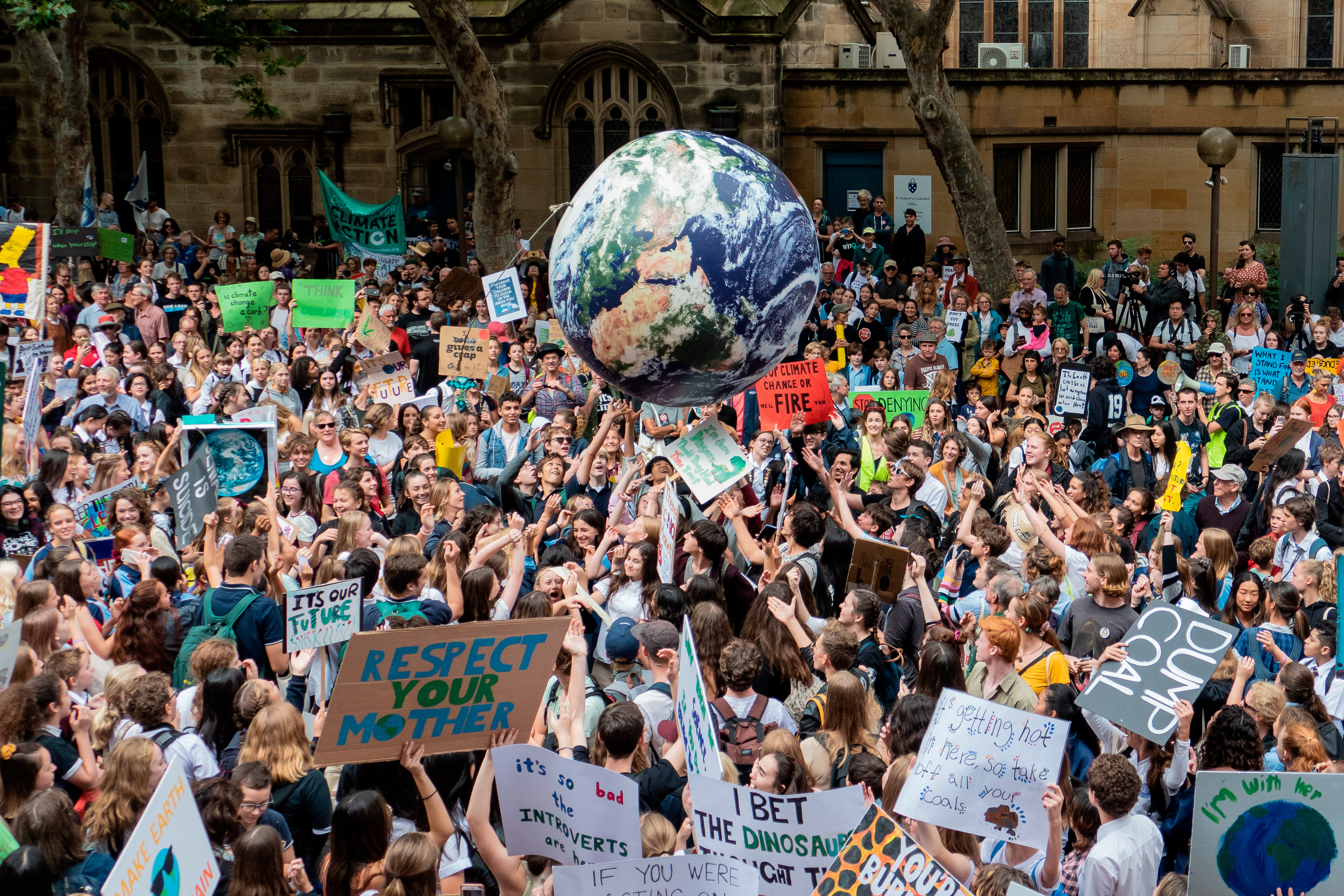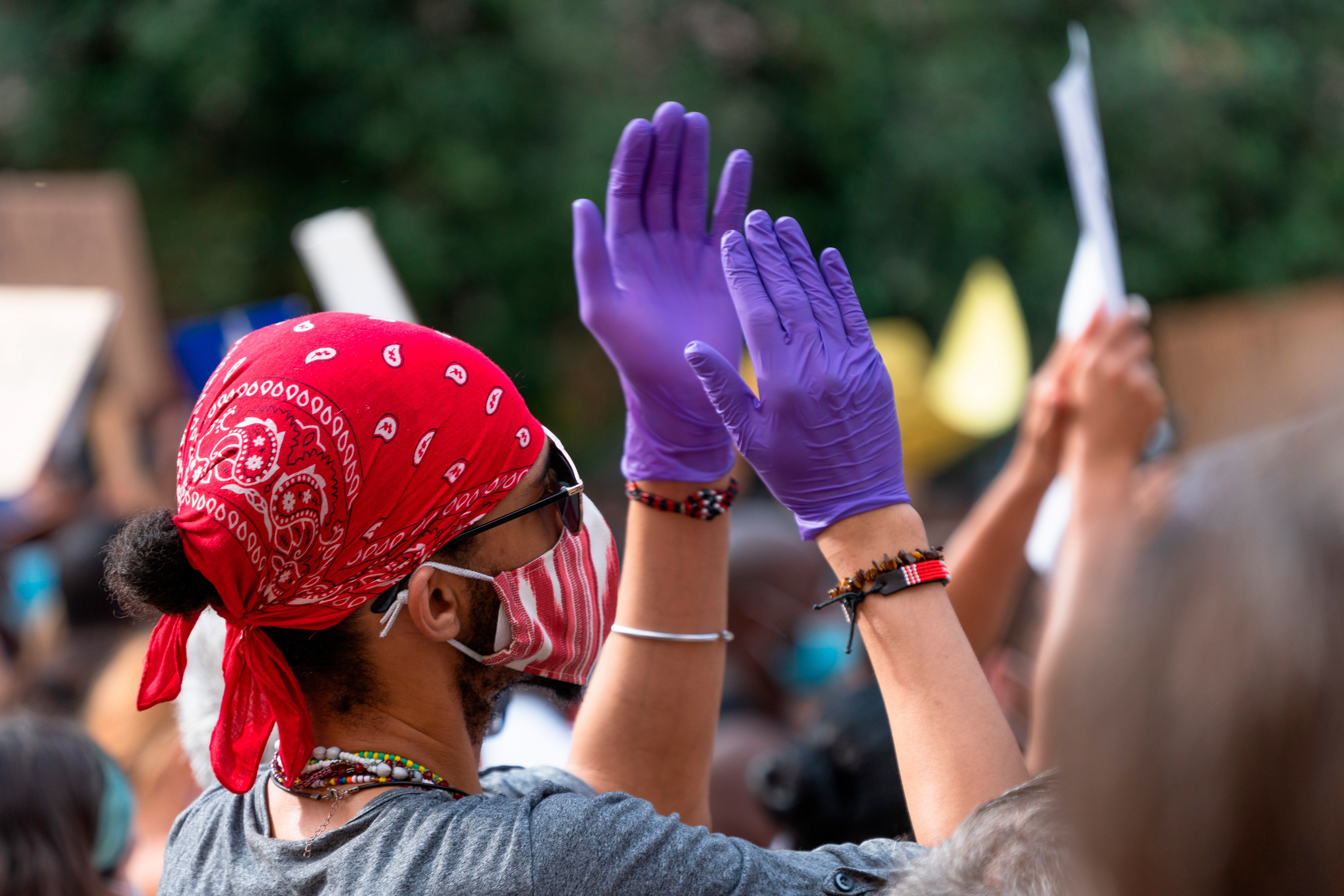Media is actually pushing the opposite. Media is, in most cases, helping the polarisation simply because they need to survive economically. Of course, the simplest way to survive economically is to stop trying to be a newspaper for the whole country, but just become a newspaper for a small niche that can be pumped for advertising revenue. Institutions like the BBC, which are so unique, haven’t made the leap into digital. They’re still stuck in broadcast, which means that they do what they do well in broadcast. But in this new online space, they’re not diving in and trying to start a conversation between young Muslim radicals in Bradford and left-wing bourgeoisie in Kensington, for example. They don’t know how to do that.
Democracy and the politics of identity
Visiting Senior Fellow
- The information, or misinformation, crisis cannot be dealt with from a media standpoint alone.
- The information crisis has permeated all aspects of society. This threat to democracy has to be addressed in all of our institutions, systematically.
- Individuals turn to smaller, tribal microcosms and close themselves off to deliberative conversation with others.
- Fortunately, it is still possible to find commonalities between groups that seem diametrically opposed.
The media “problem”
I always get confused when I look for a word that describes the scale of the issue that we’re talking about. I suppose you could just reduce this to a question about election rules or media; often, this is just talked about as a media problem. That’s not the right way to look at it. The internet is not a media space or even an information space. It’s just society. It’s everything. It’s where our schooling is and our relationships are. It’s not an information space issue that can be thought about purely in one government department. This is not just an issue for one ministry, like the often overlooked Department for Digital, Culture, Media & Sport in Britain. This is not just a culture, media and sport problem while the economy and healthcare and everything else ignores it. This is everything. This is how we organise ourselves. This is how we relate to ourselves as a society. So, the issues that have to be addressed are … everything.
The greater crisis
We really have to think in a new way about how our society makes sense of itself and how societies always create metaphors of themselves through media in order to have a dialogue with themselves. The magic of the BBC, in its years of hegemonic power, was that it would create a metaphor for the whole of British society on a small screen. On a talk show, there would be someone from the left and the right and that was our society talking back to itself. You had sitcoms and TV shows which reflected society back to the public. It was like a crucible in which we could talk, discuss, deliberate and decide.
Of course, that is literally what Parliament is supposed to be. They’re our representatives. We can think about it in terms of philology: these are metaphors and metonymies for a greater whole, but something’s broken down. Something has broken down in the way we represent ourselves, the way we imagine ourselves, the metaphors we have, to the point where parties in Parliament don’t mean anything anymore. What is a Conservative these days? What is a Liberal? None of these words mean anything. The parties themselves have become these strange amorphous groups that have left people behind and often just talk among themselves. That’s the gap that populists have come in to fill and grab people’s attention. But this disconnect also exists on TV. People watch TV and don’t see themselves or they just disappear down little niches into little Facebook groups where they feel they’re represented. So, that’s the greater crisis.

© Photo by Rawpixel.com
The Strongman temptation
Information flows through that. Information is that thing through which our society manages a metaphor for itself, through which you can then make various decisions. The great danger is that if our representation system keeps breaking down further, the only way then to unite societies, or at least the most obvious answer, becomes authoritarianism. We would need a strong leader to sort out this mess. We won’t be able to make decisions. We will have broken down and hit a dead end. When we can no longer talk to each other, the Strongman must come. And that’s an option that I think will be very appealing in a lot of environments. More likely, especially in Western democracies, it’s just going to be chaos and fragmentation and irrelevance. Countries like China and Russia, who do have a purpose, a mission and a very cruel system that seems to work quite well, will take advantage of that situation.
Reconnecting with representation
The media needs to start listening to its audiences more. If there’s that gap in which people don’t feel that their old newspapers or their old parties represent them, the media needs to get in contact with its audiences, understand their anxieties, their trauma, and help bring those into speech. Media, or some new organisation, some civic form of media, needs to have as its mission to bring these different groups together to generate a way for them to deliberate and talk to each other so they can come to common decisions.
In Ireland, before the referendum on abortion, there were many public assemblies. Many public discussions, town halls and online discussions were organised about the abortion referendum so that people understood what it was about. People were more informed and society felt that it had gone through a process of common deliberation. There’s some evidence that shows that when people feel that they’re part of the law-making process, when they feel that they’re part of a procedural justice, when they hear that their voice has been taken into account, they trust these institutions more. Now, that used to be done through political representatives but maybe it has to be done through other ways now so we can have a full-scale reassessment of how we talk to ourselves as a society. I expect we’ll need new institutions for this. I think this might be a new mission for civil society, but I don’t think media can do this.

© Photo by Holli
Researching new solutions
In the little institute that I run at the LSE, we do a lot of social media analysis first, as well as polling with many focus groups. We try to find the common causes of concern and trauma and unarticulated frustration between different social groups. In these studies, we often find that beneath the tribalism, there’s a lot of commonality, actually, and that the tribalism is there because of unresolved trauma. From these observations, we try to find ways to initiate conversation around shared interests and experiences.
For example, we’ve been working on Ukraine a lot, which is mistakenly thought to be polarised between pro-Russian and pro-Western. People are only split that way in the propagandistic cliché. We do a lot of research trying to understand what these different groups in different parts of the country – some of whom are pro-Putin; others pro-Western – actually have in common. Very quickly, we found that the division has nothing to do with nationalism or Russia. It’s based on their experiences in the 1990s that left them emotionally shell-shocked or on unresolved issues from the late Soviet period, like the Chernobyl disaster or the Afghan war, which left them feeling that they have no dignity. Those are the issues that they really want to talk about, and those are the emotional reservoirs of concern that the propagandists play on. Propagandists will take people’s sense of chaos and inner turmoil and give it shape by saying something along the lines of: "The evil West is to blame for it all." So, our job as researchers is to go deeper than the propagandists. The same thinking we apply to imagining the media of the future, the public service media of the future, we have to apply to state institutions and courts of law. How do they engage people so that they feel that they have meaning and an agency in that relationship?
A real tug of war
The underlying tension that we see everywhere is the battle between what some call “enlightenment values”, this kind of epistemic constitution in which you have a democracy where evidence matters; a “deliberative democracy”, where people respect arguments, where you can win an argument with the evidence; and a tribal, highly emotional chaotic political world. Although we never really had true deliberative democracy, it was an ideal. We did have institutions that we trusted – courts, for example – and expertise was trusted. We had offices of national statistics and when they said something, it was trusted.
On the one hand now, you have the vestiges of deliberative democracy and enlightenment ideals and on the other hand, this kind of politics where nobody can tell truth from fiction, where people feel they live in an information, disinformation, misinformation whirlpool tumult. In that world, all that matters are emotions and your tribe, identity politics and the politics of identity. Over the last five years, the emotional politics of identity have been winning quite spectacularly over technocrats who have been pushed out by populists.

© Photo by MF_Orleans
In the Coronavirus crisis, we see these two things colliding, because this is a crisis which does not care about culture wars. The doctor emerges out of the mess of our tribal politics as someone we can all worship, which leads to a renaissance of the technocrats. That’s because people need reliable evidence to survive: health is where people push away identity and think about objective reality, evidence and science.
But on the other hand, we see what’s happening in America. Even Coronavirus started to get politicised: wearing a mask became a sign of your political allegiance. It’s absurd. The politics of emotion and identity are eating into, really, the last drawbridge of evidence-based discourse. We’ll see who wins; it’s a real tug of war. This may be a moment where ultimately society came to its senses and started understanding that we need to have some sort of processes and evidence that we trust or else we die.
Discover more about
protecting democracy today
Pomerantsev, P. (2019). This Is Not Propaganda. Adventures in the War Against Reality. PublicAffairs.
Pomerantsev, P. (2015). Nothing Is True and Everything Is Possible. The Surreal Heart of the New Russia. PublicAffairs.